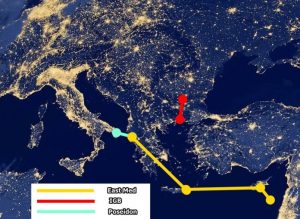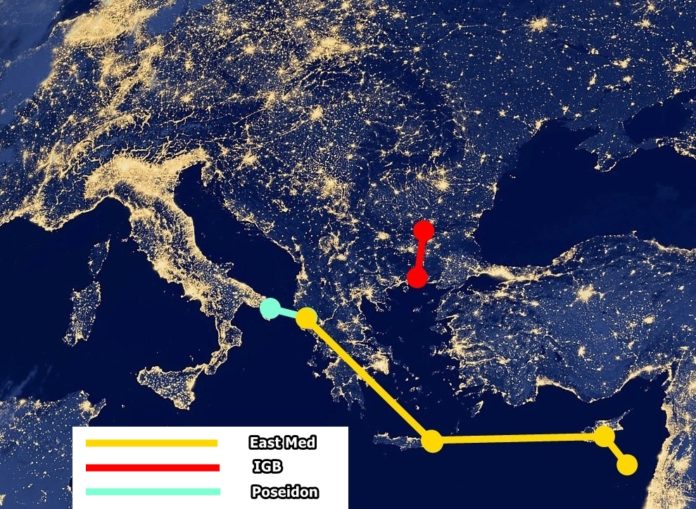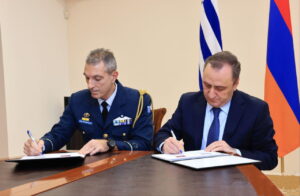The US submitted a request to join the Eastern Mediterranean Gas Forum (EMGF) on January 13, the environment and energy ministry pointed out on the occasion of the ratification by the Parliament of the bill on the charter of the Organisation.
The EMGF charter was signed in September 2020 by its seven member-states (Egypt, Greece, Cyprus, Israel, Italy, Jordan, Palestine) and has so far been ratified by four of them. With its ratification by the Greek Parliament, Greece becomes the fifth member-state to do so, which is the minimum number of states required for the charter to enter into force.
“The EMGF will be based in Cairo and will be open to accepting as a member any country that shares the common interests and objectives of the Forum, as well as countries and regional or international organisations wishing to monitor its work as observers,” the Greek ministry said and added: “By the end of 2020, France had already expressed an interest in participating as a member of the Forum, something that cannot happen, as the charter does not make provision for the membership of countries that do not neighbour upon and are not located in the region, while the US, the European Commission and the United Arab Emirates have expressed interest in their participation as observers. On 13/1/2021 the USA submitted a request to join the organisation,” the ministry said.
“Greece strongly supports the strengthening of cooperation between all countries in the Eastern Mediterranean region, as it seeks to create closer ties that will allow countries to utilise the great energy potential of the region for the benefit of their citizens,” it added. “It is a fact that the countries of the Eastern Mediterranean face common challenges in the energy sector, such as the need to diversify energy resources and routes, security of energy supply and the need to modernise and develop new energy infrastructure. The EMGF can thus serve as a model for promoting multilateral dialogue and promoting relations between the countries of the region and launching a structured and systematic political dialogue on gas that will lead to the development of a sustainable regional gas market which will contribute to enhancing the energy security and stability of the region,” the ministry concluded.
The same bill ratified the transnational agreement for the Greek-Bulgarian gas pipeline (IGB) which is under construction and is expected to be completed by the end of 2021. The pipeline will connect Komotini with Stara Zagora in Bulgaria. At one end the pipeline will be connected to the Trans-Adriatic Pipeline (TAP) and the DESFA system, while the other end will be connected to the Bulgartransgaz (Bulgarian gas operator) network.
“The construction and operation of the project upgrades the geostrategic position of Greece as the country becomes a gateway for natural gas to the European market from diversified sources and mainly from TAP. In addition, however, it utilises the planned liquefied natural gas Floating Storage Regasification Unit (FSRU) at Alexandroupolis as the quantities that will be imported through it are foreseen to be transported to the North via the IGB.
Besides, the IGB is the first part of the so-called ‘Vertical Corridor’, ie the interconnection of the national gas systems of Greece, Bulgaria, Romania and Hungary for the purpose of alternative supply to the countries of Southeastern and Central Europe”, the ministry stressed.
The Intergovernmental Agreement has already been ratified by the Bulgarian Parliament.







